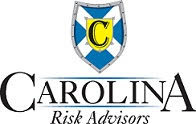On our way home from the airport, I tried to use my check card at the gas station and it was declined. I was stunned and embarrassed… and then panicked. As our family’s CFO, I know at all times how much money we have available. I knew we had plenty of funds in our checking account, even after our vacation spending. I hurriedly paid with a credit card and went home to call our bank.
After a lot of phone calls and research, I put together what happened. I’d saved my check card as a form of payment on the online music service account – I like to pay cash for just about everything. In those few moments at the café while I was online, a hacker was able to view my account information and pull my check card number. The thieves accessed our checking account tentatively at first, with a $1 preauthorization to what looked like it came from the music service – that’s what generated the courtesy call. Once I told the bank that I believed that charge was legitimate, the floodgates were open: in small increments that would be undetectable to the unobservant, the hacker charged our checking account for hundreds of dollars.
I’ll save you the painful details of what I had to go through to get our account reimbursed, but I’d also like to save you from being in a similar predicament. Individual attacks might seem unlikely; it’s clearly a bigger score for a thief to gain access to thousands of accounts at once through a security breach. But considering my experience, you should be aware that theft can happen on an individual basis, too.
You’ve earned your money and built your credit carefully, so here are some tips to help you protect what’s yours:
- Consider purchasing an RFID wallet. I’ve not seen a fashionable one yet, but looks aren’t everything! If you have cards that allow wireless pay (you wave the card in front of a reader), those cards could be vulnerable. RFID wallets create a barrier between your cards and scanning devices, helping you eliminate unwanted access while your cards are in the wallet.
- Carry only the card(s) you know you’ll use during any given outing. You don’t need them all! Lock the rest in a secured fireproof box at home.
- Record each credit card number and the customer service number for each account you have. Then lock that document away in case your wallet is stolen. Remember to update your list when you get a new card or close an account.
- Consider an identity theft protection service. Look for a reputable service that offers limits of protection that match your needs. Enter all account information and update it regularly.
- Designate one card with a low limit for online purchases. This is one way to minimize your risks and also monitor online spending. And if a website looks sketchy or it isn’t clear that the site is secure, don’t make a purchase.
- Keep your Social Security card at home, not in your wallet. Also, use extreme caution in the few legitimate instances it’s required online
- Run a credit report on yourself once a year. This is a great way to monitor your activity, make sure your credit score is healthy and spot any incorrect information or fraud.
- Don’t use unsecured, unprotected networks. If you’re not sure whether the wireless access offered at a public place is secure, take this sage advice from my grandmother: “If in doubt, don’t.”
Keep in mind that as technology evolves every day, so do the methods that thieves use to capture your information. You deserve to reap the rewards of your hard work and to keep your accounts and personal information safe.
Source: http://blog.cinfin.com/2017/03/30/cyber-earned-now-protect/


